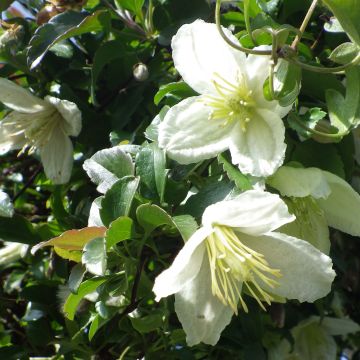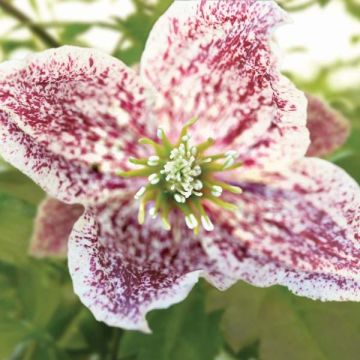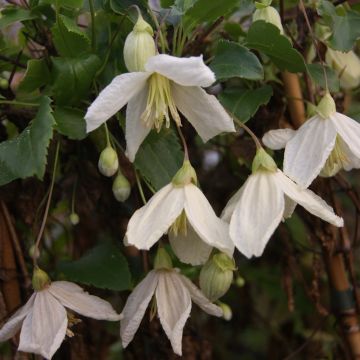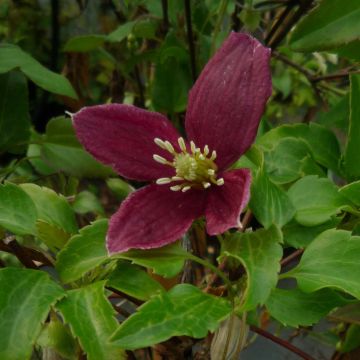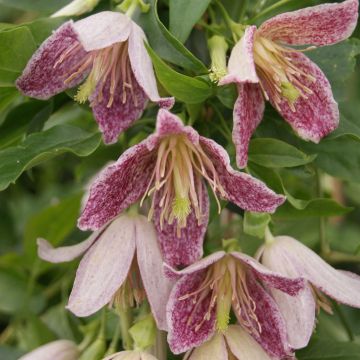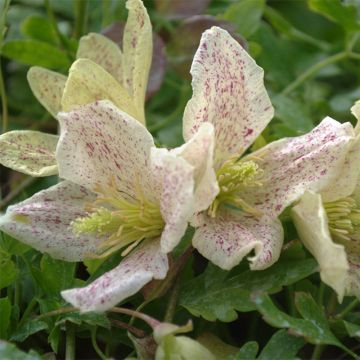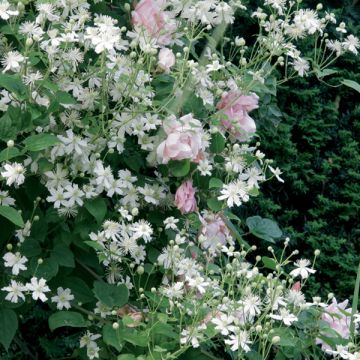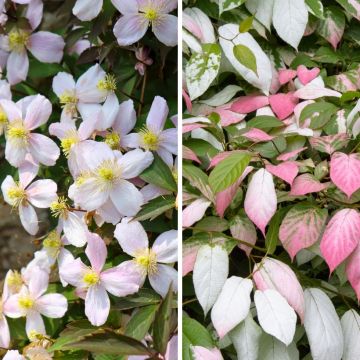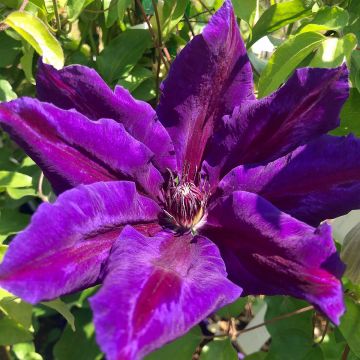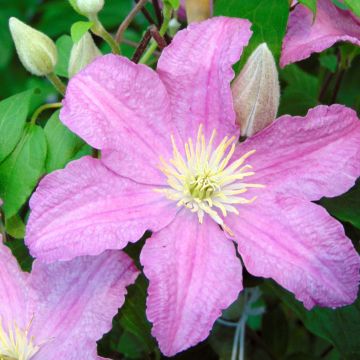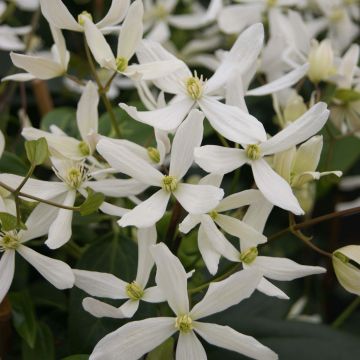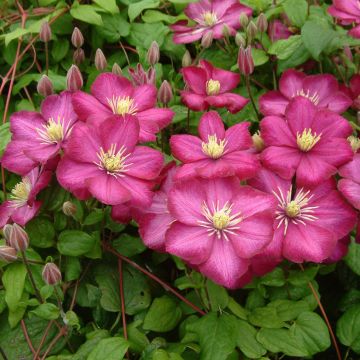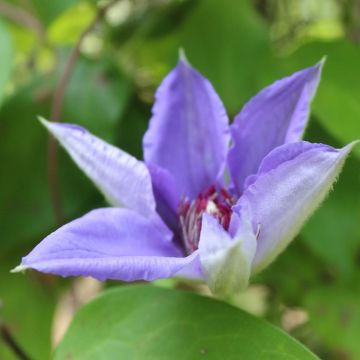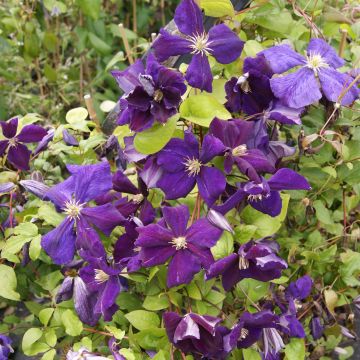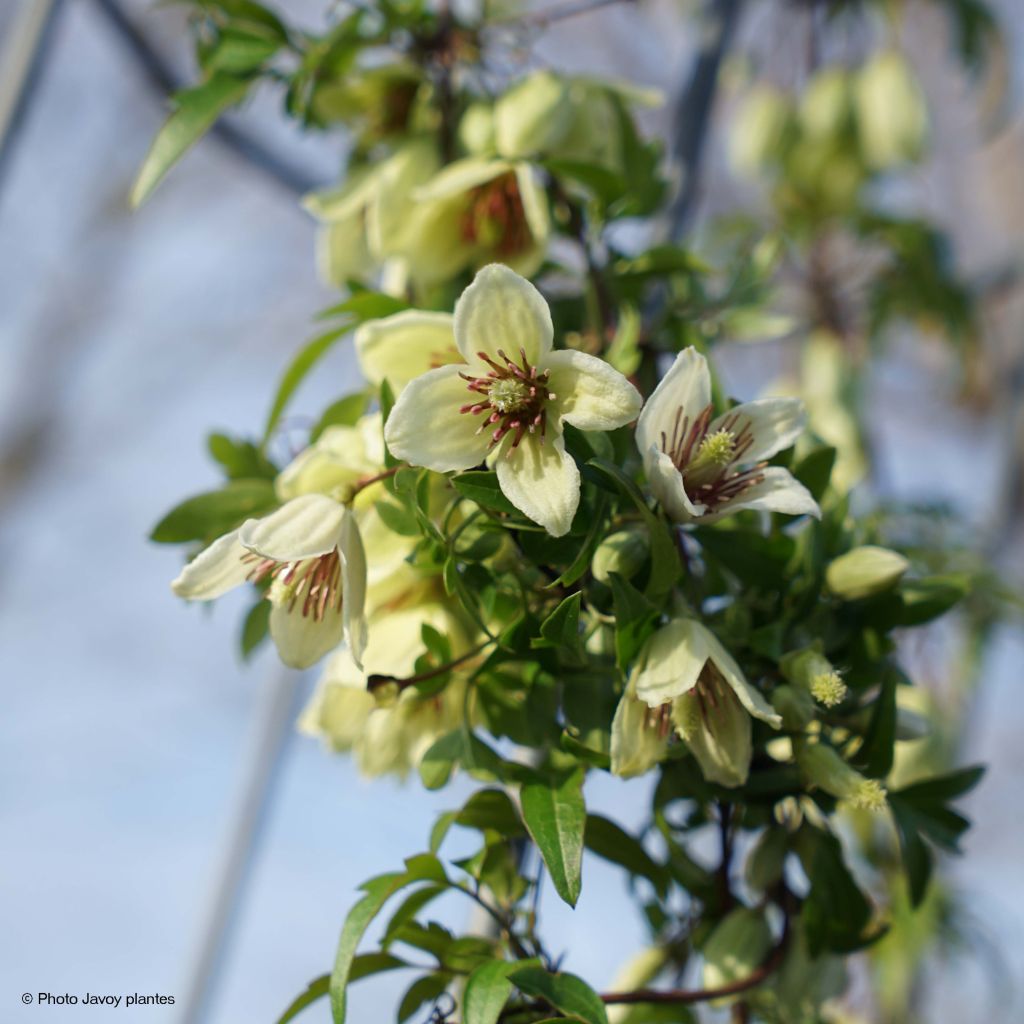

Clématite Christmas Surprise - Clematite de Noël
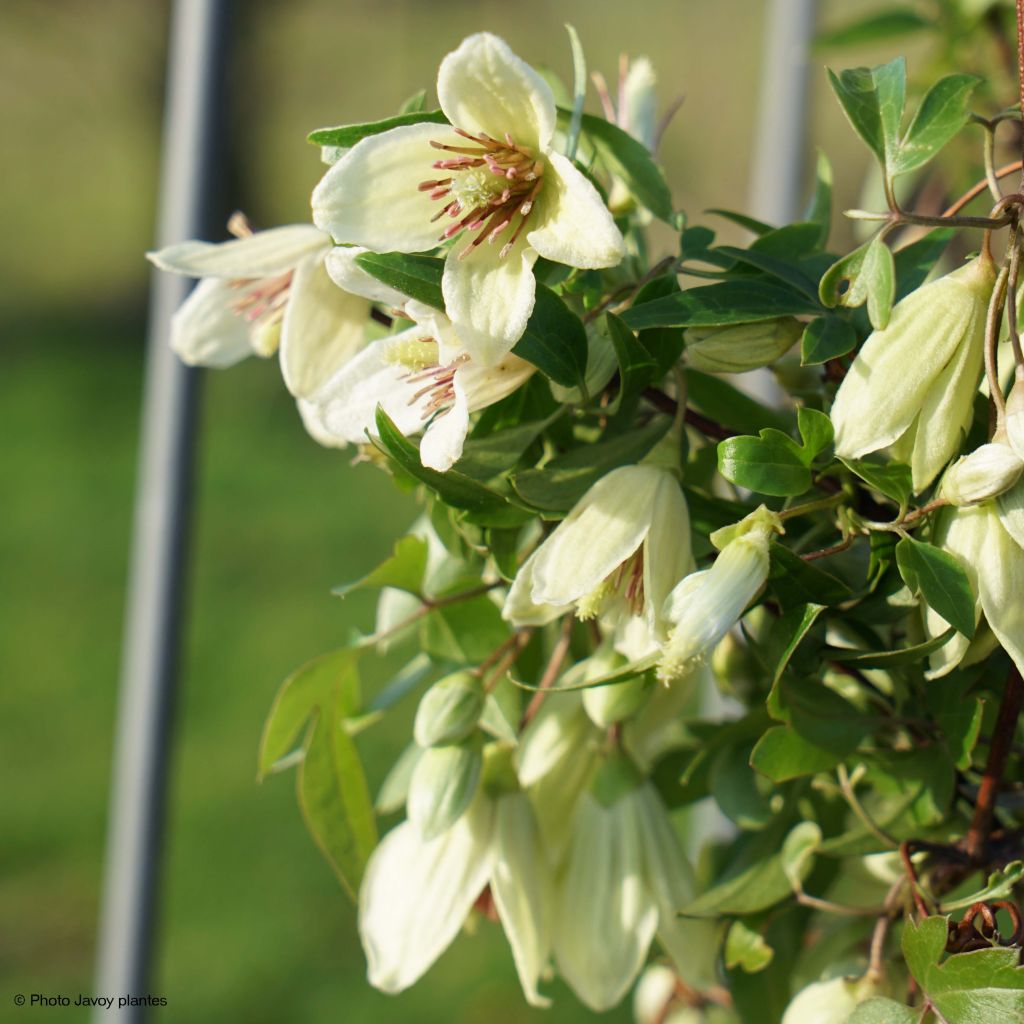

Clématite Christmas Surprise - Clematite de Noël
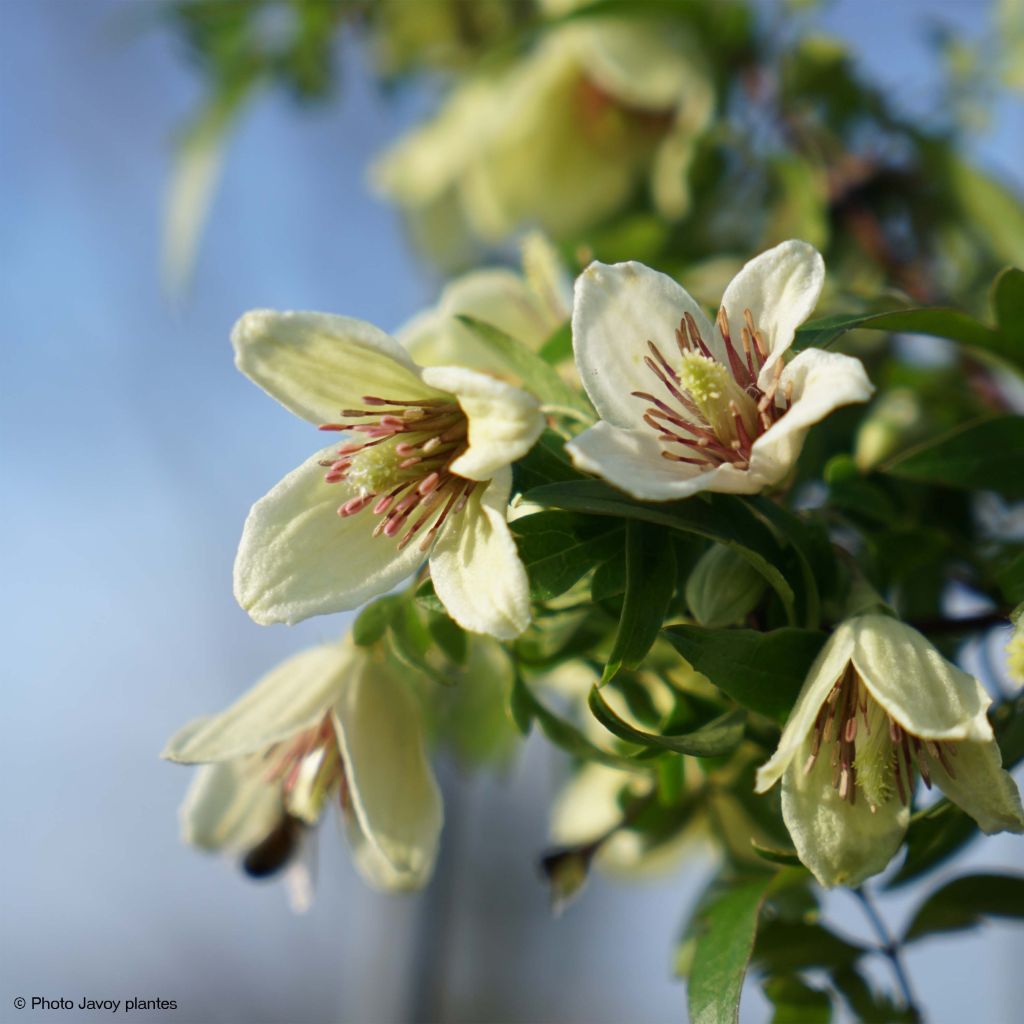

Clématite Christmas Surprise - Clematite de Noël
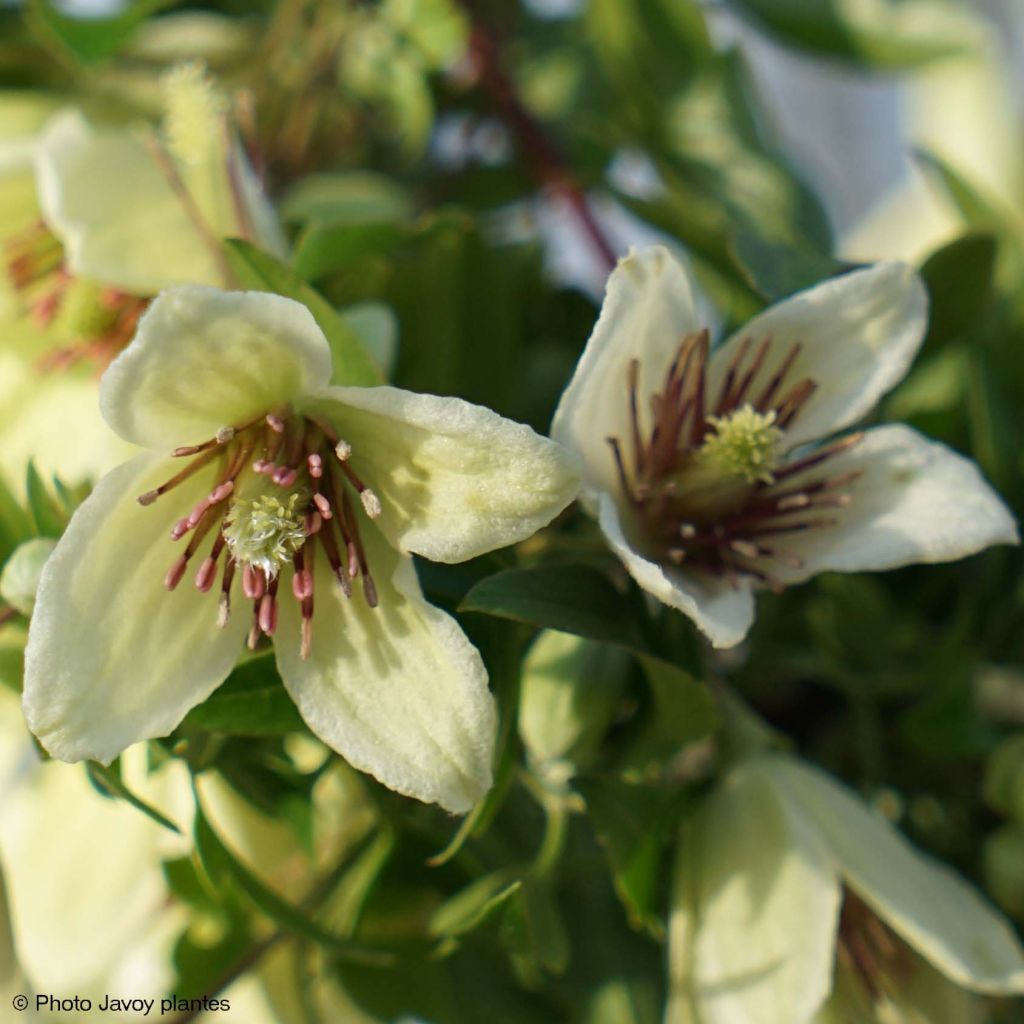

Clématite Christmas Surprise - Clematite de Noël
View more pictures
Hide images
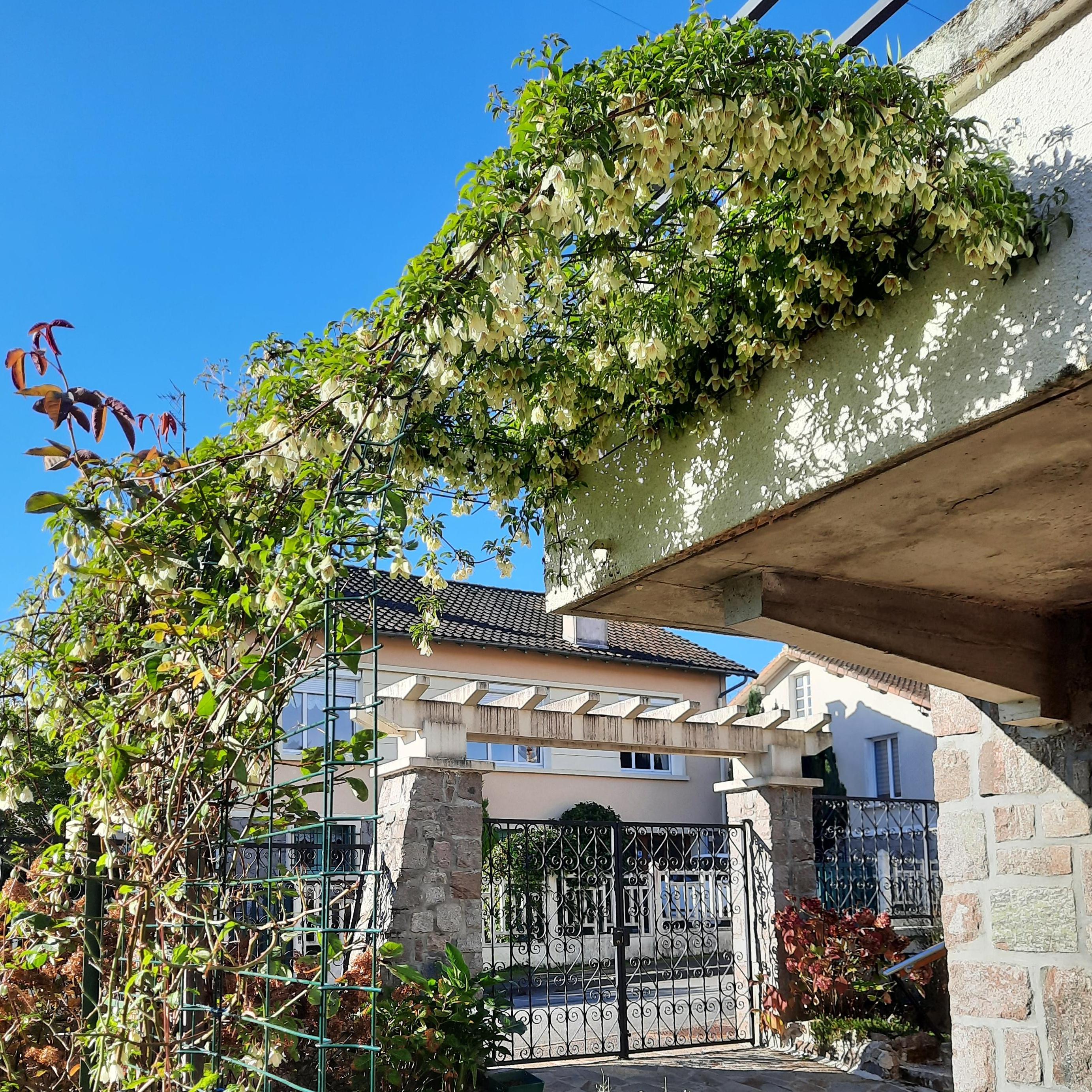
Danielle D.

It coexists with the thornless climbing rose Zepherine Drouhin, it's too beautiful.
Danielle D. • 87 FR
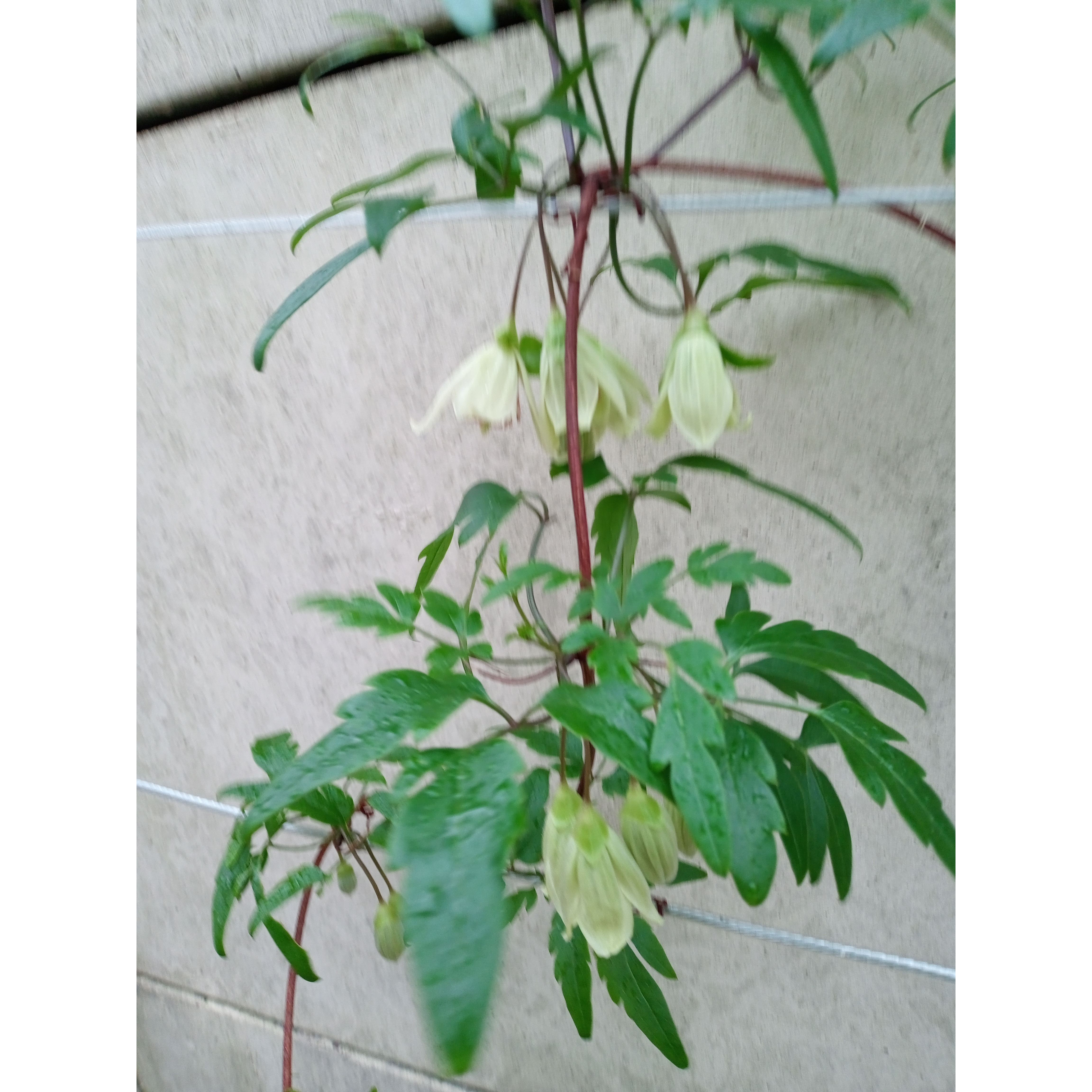
Francoise V.

Francoise V. • 33 FR
Clematis x napaulensis Christmas Surprise
Clematis x napaulensis Christmas Surprise
The plant arrived in good condition and was planted shortly after. Unfortunately, it lost its leaves very quickly. I waited until spring, hoping it would recover, but it seems completely dead...
Maxime, 14/05/2025
Special offer!
Receive a €20 voucher for any order over €90 (excluding delivery costs, credit notes, and plastic-free options)!
1- Add your favorite plants to your cart.
2- Once you have reached €90, confirm your order (you can even choose the delivery date!).
3- As soon as your order is shipped, you will receive an email containing your voucher code, valid for 3 months (90 days).
Your voucher is unique and can only be used once, for any order with a minimum value of €20, excluding delivery costs.
Can be combined with other current offers, non-divisible and non-refundable.
Why not try an alternative variety in stock?
View all →This plant carries a 6 months recovery warranty
More information
We guarantee the quality of our plants for a full growing cycle, and will replace at our expense any plant that fails to recover under normal climatic and planting conditions.
Would this plant suit my garden?
Set up your Plantfit profile →
Description
Clematis 'Christmas Surprise' is a variety of Christmas clematis very similar to the botanical species C. napaulensis, from which it inherited its evergreen foliage and beautiful winter flowering of small, slightly scented white-cream bells and decorative feathery fruits. In warm climates, its foliage disappears in summer and reappears in autumn. This variety is fairly resistant to lack of water in summer and cold temperatures. With a modest stature, it is ideal for filling a trellis, a wall, or a deciduous bush that will hide its bare stems in summer. It can also be planted in a large pot with the support of a frame.
Clematis 'Christmas Surprise' is a woody climbing plant from the Ranunculaceae family, recently selected in France by Javoy nurseries. It is derived from C. napaulensis, a rare species native to Nepal and the warm regions of southern China. 'Christmas Surprise' has thin voluble stems that easily cling to their support. It can climb up to 2 or 2.5m (7 or 8ft) in height and spread as much. It blooms on the previous year's branches. Its flowering sometimes begins in November, on new foliage, but most often it occurs in February-March. The flowering takes the form of numerous clusters of slightly soft and thick pendulous flowers, 3 to 5cm (1 to 2in) wide, formed by 4 slightly curved petals widely open on a bouquet of short bronze-orange stamens. After pollination, beautiful silky and feathery heads of white-grey seeds form, which can persist for several months. The dark green and slightly glossy leaves are divided into 3 to 5 lanceolate leaflets with smooth edges. If they are maintained in a humid climate in summer, the leaves curl up and disappear as soon as the summer heat and its dryness arrive.
Clematis 'Christmas Surprise' is a rather robust, undemanding, graceful, and pretty plant. Its only flaw is its hardiness, which can sometimes fail in wet soil during a harsh winter. However, it can withstand temperatures of around -8 to -12°C (17.6 to 10.4°F) if planted in well-drained soil in full sun and sheltered from the wind. The sight of its flowers is a wonderful surprise in winter. Let it climb on a deciduous bush (white spirea, oval-leaved serviceberry, 'Red Cascade' smokebush, cotinus), with a complementary growth cycle. Its flower clusters will decorate their bare branches in winter. It can also accompany the fragrant honeysuckle (Lonicera fragrantissima), which blooms white in February, perfuming the surrounding air. In cool climates, it is beautiful all year round. It can be trained on a trellis, a fence, or even on a small wrought iron structure placed near a large pot on a patio.
Report an error about the product description
Clematis x napaulensis Christmas Surprise in pictures
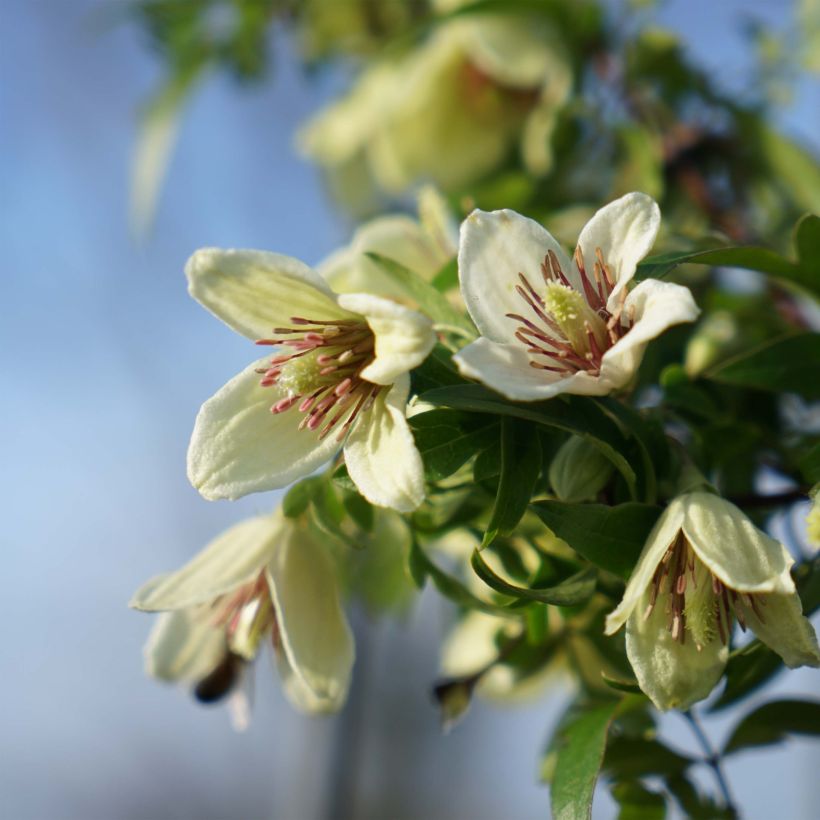

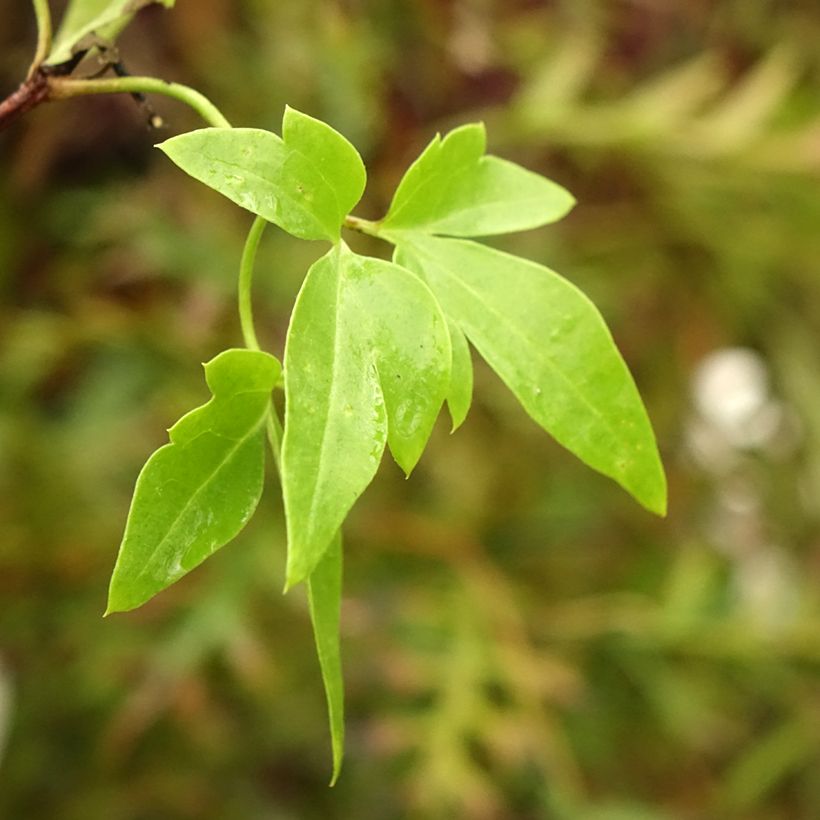

Plant habit
Flowering
Foliage
Botanical data
Clematis
x napaulensis
Christmas Surprise
Ranunculaceae
Cultivar or hybrid
Other Clematis Cirrhosa
View all →Planting and care
It tolerates warms climates and dry summers. It will also appreciate the dappled shade of a deciduous tree in summer. Plant in fertile, humus-rich, well-drained soil, even if dry in summer or slightly alkaline, shading the roots and the base of the stem (with a flat tile, for example). Clematis wilts in overly moist soil. Work the soil to a depth of 20cm (8in), and lighten it with good compost. Position the plant and cover the root ball with 3cm (1in) of soil. After planting, cut back the clematis stems to about 30cm (12in) from the base above a nice pair of buds. Water generously and regularly during the first few weeks. However, be careful not to let the water stagnate as this can cause fungus to develop at the base.
Mulch all clematis in February with garden compost or well-rotted manure, avoiding direct contact with the stems.
Train the stems, without tightening them, until the plant grips by itself. Clematis also like to grow freely on neighbouring plants.
After a few years, cover the base of your climbing clematis with a small mound of soil to reduce the risk of wilting while encouraging new shoots from the stump.
Voles and grey worms can attack clematis and devour the stems. Aphids and greenhouse whiteflies are also potential parasites.
Planting period
Intended location
Care
-
, onOrder confirmed
Reply from on Promesse de fleurs
Similar products
Haven't found what you were looking for?
Hardiness is the lowest winter temperature a plant can endure without suffering serious damage or even dying. However, hardiness is affected by location (a sheltered area, such as a patio), protection (winter cover) and soil type (hardiness is improved by well-drained soil).

Photo Sharing Terms & Conditions
In order to encourage gardeners to interact and share their experiences, Promesse de fleurs offers various media enabling content to be uploaded onto its Site - in particular via the ‘Photo sharing’ module.
The User agrees to refrain from:
- Posting any content that is illegal, prejudicial, insulting, racist, inciteful to hatred, revisionist, contrary to public decency, that infringes on privacy or on the privacy rights of third parties, in particular the publicity rights of persons and goods, intellectual property rights, or the right to privacy.
- Submitting content on behalf of a third party;
- Impersonate the identity of a third party and/or publish any personal information about a third party;
In general, the User undertakes to refrain from any unethical behaviour.
All Content (in particular text, comments, files, images, photos, videos, creative works, etc.), which may be subject to property or intellectual property rights, image or other private rights, shall remain the property of the User, subject to the limited rights granted by the terms of the licence granted by Promesse de fleurs as stated below. Users are at liberty to publish or not to publish such Content on the Site, notably via the ‘Photo Sharing’ facility, and accept that this Content shall be made public and freely accessible, notably on the Internet.
Users further acknowledge, undertake to have ,and guarantee that they hold all necessary rights and permissions to publish such material on the Site, in particular with regard to the legislation in force pertaining to any privacy, property, intellectual property, image, or contractual rights, or rights of any other nature. By publishing such Content on the Site, Users acknowledge accepting full liability as publishers of the Content within the meaning of the law, and grant Promesse de fleurs, free of charge, an inclusive, worldwide licence for the said Content for the entire duration of its publication, including all reproduction, representation, up/downloading, displaying, performing, transmission, and storage rights.
Users also grant permission for their name to be linked to the Content and accept that this link may not always be made available.
By engaging in posting material, Users consent to their Content becoming automatically accessible on the Internet, in particular on other sites and/or blogs and/or web pages of the Promesse de fleurs site, including in particular social pages and the Promesse de fleurs catalogue.
Users may secure the removal of entrusted content free of charge by issuing a simple request via our contact form.
The flowering period indicated on our website applies to countries and regions located in USDA zone 8 (France, the United Kingdom, Ireland, the Netherlands, etc.)
It will vary according to where you live:
- In zones 9 to 10 (Italy, Spain, Greece, etc.), flowering will occur about 2 to 4 weeks earlier.
- In zones 6 to 7 (Germany, Poland, Slovenia, and lower mountainous regions), flowering will be delayed by 2 to 3 weeks.
- In zone 5 (Central Europe, Scandinavia), blooming will be delayed by 3 to 5 weeks.
In temperate climates, pruning of spring-flowering shrubs (forsythia, spireas, etc.) should be done just after flowering.
Pruning of summer-flowering shrubs (Indian Lilac, Perovskia, etc.) can be done in winter or spring.
In cold regions as well as with frost-sensitive plants, avoid pruning too early when severe frosts may still occur.
The planting period indicated on our website applies to countries and regions located in USDA zone 8 (France, United Kingdom, Ireland, Netherlands).
It will vary according to where you live:
- In Mediterranean zones (Marseille, Madrid, Milan, etc.), autumn and winter are the best planting periods.
- In continental zones (Strasbourg, Munich, Vienna, etc.), delay planting by 2 to 3 weeks in spring and bring it forward by 2 to 4 weeks in autumn.
- In mountainous regions (the Alps, Pyrenees, Carpathians, etc.), it is best to plant in late spring (May-June) or late summer (August-September).
The harvesting period indicated on our website applies to countries and regions in USDA zone 8 (France, England, Ireland, the Netherlands).
In colder areas (Scandinavia, Poland, Austria...) fruit and vegetable harvests are likely to be delayed by 3-4 weeks.
In warmer areas (Italy, Spain, Greece, etc.), harvesting will probably take place earlier, depending on weather conditions.
The sowing periods indicated on our website apply to countries and regions within USDA Zone 8 (France, UK, Ireland, Netherlands).
In colder areas (Scandinavia, Poland, Austria...), delay any outdoor sowing by 3-4 weeks, or sow under glass.
In warmer climes (Italy, Spain, Greece, etc.), bring outdoor sowing forward by a few weeks.






























